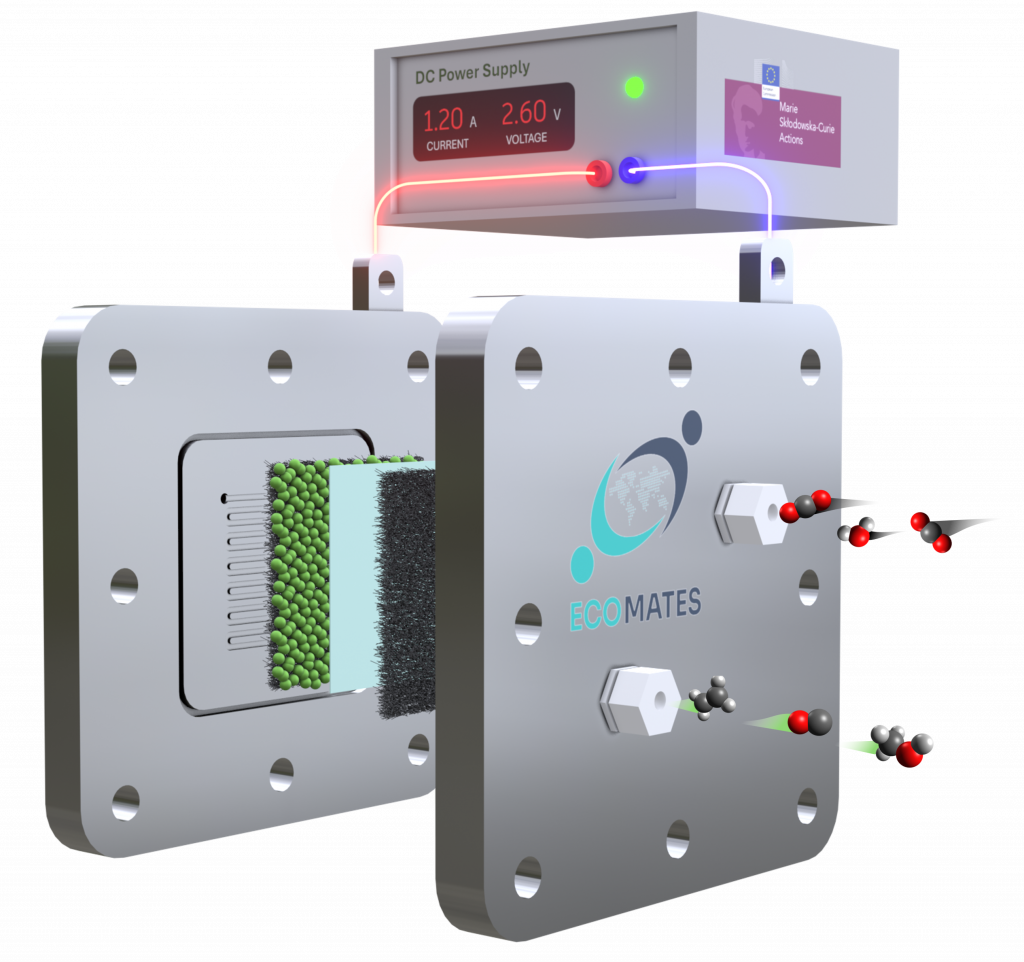The main aim of this Marie-Curie ETN is to instruct a new generation of scientists who will bring innovation in the field of electrocatalysis with particular emphasis on the design of new nanomaterials and processes based on Cu/M bimetallic compounds with improved selectivity and efficiency towards CO2 reduction to value-added products (CO, HCOOH and C2H4). The ECOMATES network gathers large European universities, international research laboratories (VITO, and IIT in the area of sustainable development), the ESRF (an international European facility), and two SMEs (ADVENT, for innovation in MEA preparation, and APRIA, for the design of testing of a CO2 electrolyzer).

The diverse know-how of the involved teams guarantees that the ten involved DCs will be trained in an interdisciplinary, intersectoral and international environment. The training program consists of cutting-edge research projects executed by the DCs across the network institutions: three 3 DCs will be mainly focusing on the synthesis and characterization of innovative bimetallic Cu/M catalysts for CO2RR, four DCs on the understanding (through simulations and experiments) of the reaction mechanism occurring at Cu/M surfaces with the aim of devising more efficient catalysts, and three DCs will work on the realization of electrodes, MEA functional testing and CO2RR processes design. The DCs will be intensively interacting with all the participating organizations during secondments, regular work package meeting and discussions, and network workshops. Moreover, network-wide innovative courses have been scheduled following the path that leads from catalysts discovery to industrial process design and have been organized with well-defined and clear objectives to ensure effective knowledge uptake. Such a unique research and educational environment will allow the DCs to develop scientific and technological knowledge that we believe will be fundamental to increase their employability outside academia.

